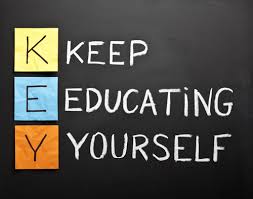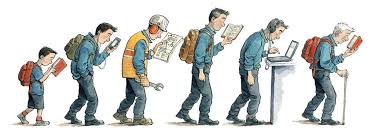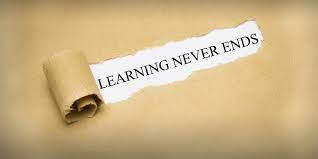Building a learning society entails the formulation of a comprehensive concept of lifelong learning.
The idea of a learning society was first proposed by American educational philosopher
Robert Hutchins.
In a 1968 book called The Learning Society, he advocated a society whose primary goals were continuous learning, active citizenship and social wellbeing.

According to Hutchins (1953:3), ‘The object of the educational system, taken as a whole, is not to produce hands for industry or to teach the young how to make a living. It is to produce responsible citizens’.
His idea of a learning society was based on the belief that education should improve society by helping learners understand, participate in, and change the world around them.
The classic definition of education is” the process of receiving or giving systematic instruction, especially at a school or university”.
But education is much more than that. It is a process of continuous learning which can be acquired anywhere at any time and any age.
It is the fundamental right of every citizen because it promotes empowerment and ensures development benefits.
Education makes us better citizens by teaching us how to conduct ourselves through life by following rules and regulations and giving us a sense of conscience.
We can agree that today lifelong learning is no longer an option but a necessity.

The United Nation definition of lifelong learning (2016) is the “ongoing, voluntary, and self-motivated pursuit of knowledge for either personal or professional reasons. Therefore, it not only enhances social inclusion, active citizenship, and personal development, but also self-sustainability, as well as competitiveness and employability. “The intrinsic motivation is also important for the distinction that can be made with incidental or random learning. Incidental or random learning may occur as a by-product of day-to-day activities, events or communication that are not designed as deliberate educational or learning activities”.
“With regard to lifelong education, it is now a matter of common knowledge that this is the concept which explains the real meaning of modern education and which should inspire and sum up all efforts directed towards reform. Education is no longer confined to a particular age, that is, only a part of life; co-existent throughout its length, it represents an attitude and a dimension of life. It is an attitude enabling us to keep in touch with realities and not simply a preparation for work and responsibilities.” (UNESCO 1969)
Lifelong learning can enhance our understanding of the world around us, provide us with more and better opportunities and improve our quality of life.
There does not need to be a specific reason for learning since learning can in itself be a rewarding experience.
It means we can get more personal satisfaction from our lives and jobs as we understand more about who we are and what we do. This can lead to better results and a more rewarding working day in turn.
In April 2015, the Malaysian Ministry of Higher education released a 10-year strategy plan, the Malaysia Education Blueprint 2015-2025.
Promoting the culture of lifelong learning is one of the seven strategic areas outlined in the National Higher Education Strategic Plan.
To inculcate the lifelong learning culture, public awareness of the benefits of lifelong learning and introduce more innovative programmes to broaden the appeal of lifelong learning.
Key initiatives include:
- Creating a framework for recognising prior learning, including the establishment of clear pathways for re-entry into the education system, establishing a national credit system to enable accumulation of modular credits over time, and stipulating clear criteria for recognising prior experience;
- Launching stakeholder engagement programmes (for example, MyCC loyalty programme, 1Family Multiple Skills Programme) that incentivise participation, and improving the existing marketing infrastructure (for example, smartphone applications) to make it easier for the public to search for information on available programmes; and
- Continuing to provide financial support to disadvantaged groups and tax reduction incentive schemes to companies, and to work with financial institutions to create financial assistance programmes for all groups.
Lifelong learning will become a way of life for all Malaysians. There will be high quality formal, non-formal, and informal programmes in a wide range of disciplines and topics to support both professional and personal development.
There will be learning communities in every organisation, with formal mechanisms to recognise prior experience and learning. Everyone will have access to these opportunities, regardless of income level or background.





